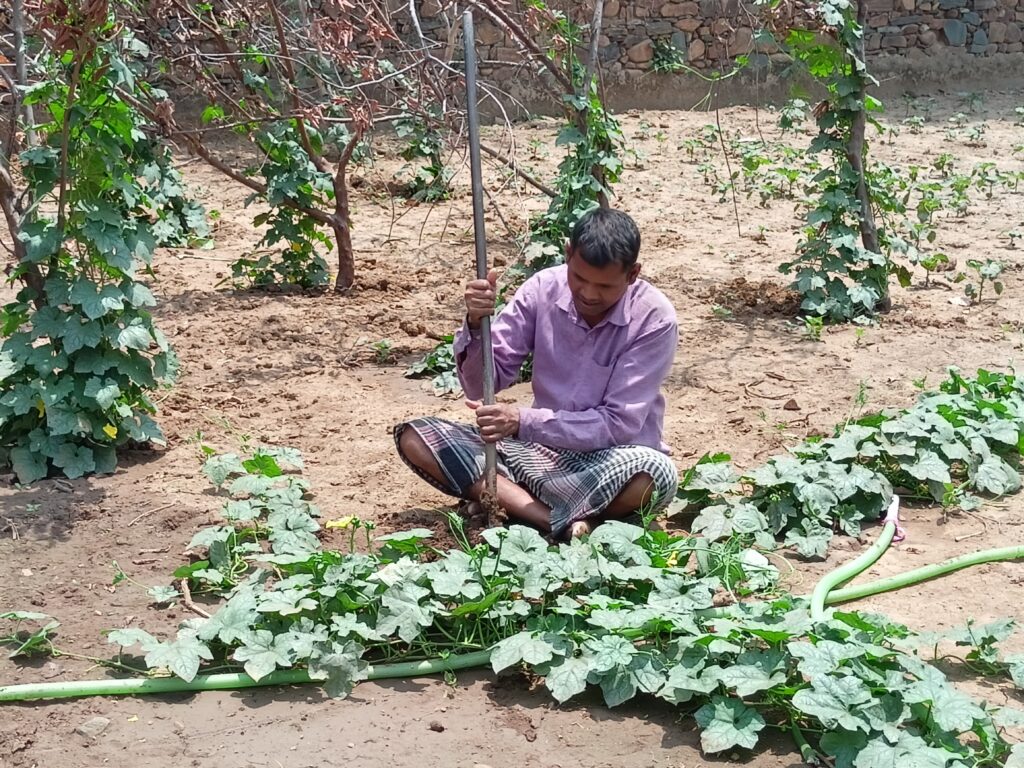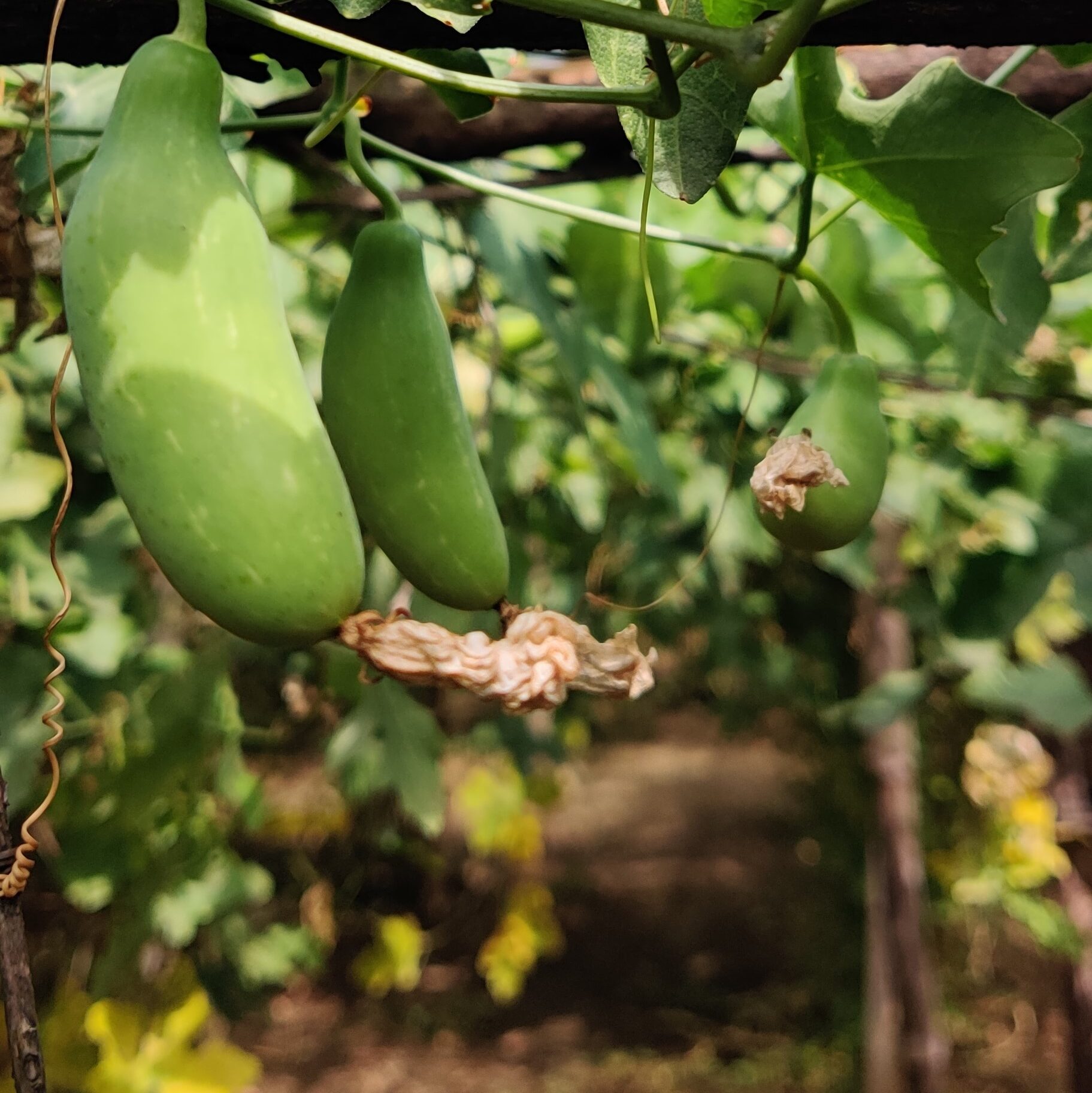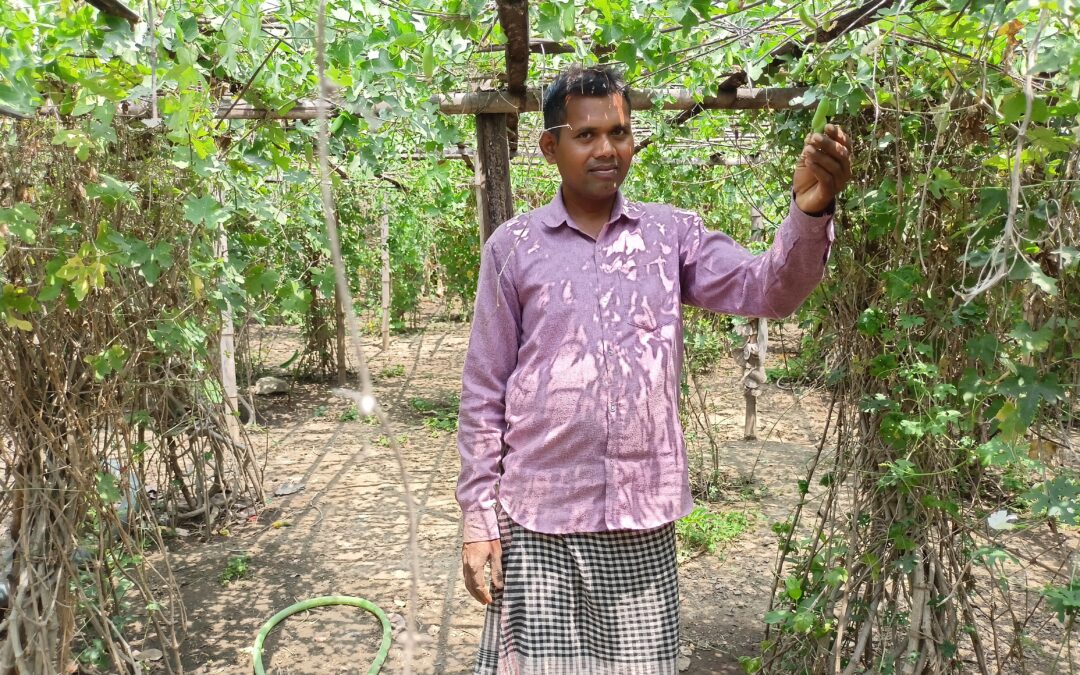In the serene village of Changua, nestled in the heart of Jharkhand, lives a farmer whose journey from conventional to natural farming has been nothing short of inspiring. Meet Nrip Narayan Mahato, a 34-year-old farmer, whose determination and courage led him to embrace sustainable practices for the well-being of his family, the soil, and the environment. This blog will take you through the transformative path Nrip Narayan embarked on, from the challenges he faced to the positive impact his decision has made on his life, family, and community.

Challenges of Conventional Farming:
Born into a farming family, Nrip Narayan witnessed his father and grandfather toil in the fields for years. Despite their hard work, factors like limited access to information, dependency on monsoons, and disturbed market linkages often resulted in uncertain returns from their harvests. The family faced financial struggles, and “There was always a problem of money in the house” became a recurring concern for Nrip Narayan.
Driven by the desire for change, Nrip Narayan’s life took a positive turn when he attended a training program on natural farming organized by ATMA (a government’s initiative). The concept of chemical-free, natural farming intrigued him, but the fear of lower yields and economic instability held him back. However, another training program, this time by the Centre for World Solidarity (CWS), opened his eyes to the possibilities of natural farming without any investment.
The Transformation to Natural Farming:
With determination and courage, Nrip Narayan took the leap into natural farming. The initial two years brought fewer yields compared to chemical farming, but the money saved on expensive agri-inputs was a relief. The real transformation was in the quality of the food his family consumed. The food became tastier, healthier, and even resolved his mother’s gastric issues. Moreover, his children grew healthier and taller, while he himself gained some healthy weight, all thanks to the nutritious produce from his farm.
The shift to natural farming brought about significant changes in Nrip Narayan’s soil. The use of bio-fertilizers made the soil fertile and improved its water retention capacity. With a water retention power that increased, he now waters his farm once in 15 days instead of every week. As climate change poses challenges of unpredictable rainfall, natural farming has proved to be a life-changing decision for Nrip Narayan.

For the past three years, Nrip Narayan has not invested a single penny in chemical fertilizers, using homemade bio-fertilizers instead. This cost-saving measure, coupled with improved yields, has boosted his economic prospects. He mainly cultivates a variety of vegetables, contributing to food security in his family.
Despite his dedication to chemical-free farming, Nrip Narayan faces the challenge of obtaining fair prices for his organic produce. The lack of awareness and market access for organic products in rural areas and the dominance of big brands and companies in urban markets pose hurdles for smallholding farmers like him.
Bhoomi Ka, supports farmers practicing chemical-free farming and has been working to provide PGS certification to Nrip Narayan. This certification will build trust among consumers and promote organic produce. Moreover, Bhoomi Ka encourages farmers to cultivate indigenous varieties like Balibhojana Rice, ensuring fair prices and market demand.
Nrip Narayan Mahato’s inspiring journey from chemical to natural farming is a testament to the power of determination and the positive impact of sustainable practices. His story highlights the potential of natural farming to transform lives, promote health and well-being, and protect the environment. As we applaud Nrip Narayan for his courageous decision, let us also recognize the crucial role of Bhoomi Ka in empowering farmers and creating a greener tomorrow for all. Together, let us support and celebrate the farmers who work tirelessly to nourish us and the planet.

